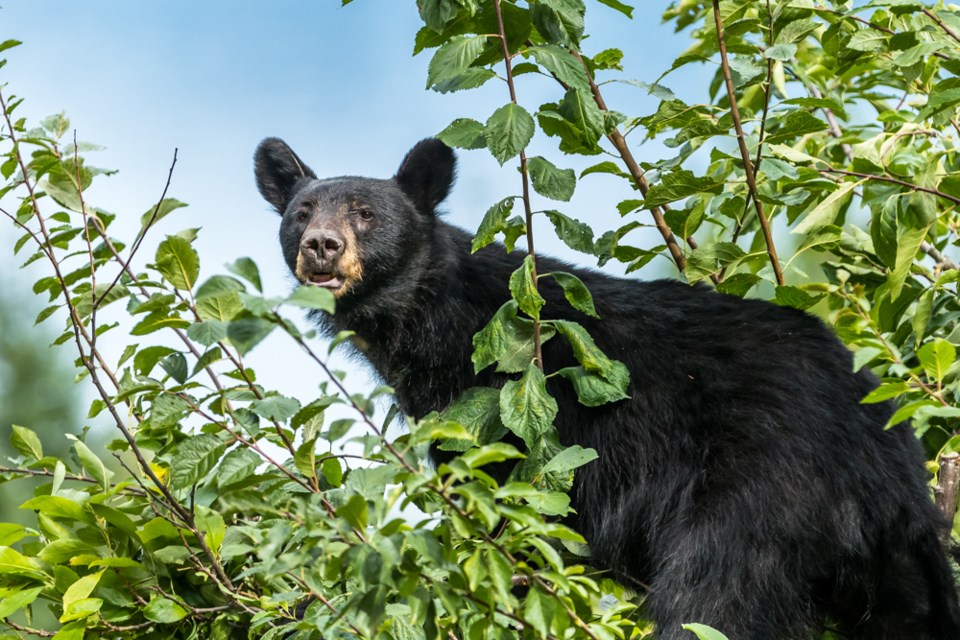WildSafeBC on the Sunshine Coast is expecting a busy fall season for black bear activity.
This year has been an “average” one for bear sightings in the area, according to Russel Dunsford, the community coordinator for the group. He anticipates that may ramp up in the coming months as our extra dry summer may result in less abundant natural food sources, including fewer fish returns in rivers. Wild food shortages can drive bears into our communities in search of easy meals as they prepare to hibernate.
In a press release dated Aug. 30, Dunsford encourages residents to keep themselves, their pets and wildlife safe while living and recreating in bear country. He asks people to proactively manage potential bear attractants that may be around their homes such as easy access to pet food or bird feeders, backyard chickens, and food-soiled barbecues.
Dunsford told Coast Reporter that he was pleased to see Gibsons’ Wildlife Attractant Bylaw introduced earlier this year. That bylaw regulates those attractants mentioned in the press release as well as fruit and nut trees, outdoor refrigerators and freezers, compost, and the feeding of wildlife.
“WildSafeBC Sunshine Coast is always supportive of municipal efforts to expand wildlife focused bylaws… These kinds of bylaws give municipal officers valuable enforcement tools otherwise only available to conservation officers or RCMP enforcing the Wildlife Act. As such, it gives local governments an added level of autonomy and additional options in their efforts to protect wildlife while keeping communities safe,” Dunsford said in an email.
Dunsford also noted that recent disruptions in curbside garbage and recycling collection presented a novel challenge to wildlife safety. The Sunshine Coast Regional District has kept him briefed on the situation, he said. They also put him in contact with residents who had questions or concerns about managing the extra attractant load that any delayed collection caused.
“I would like to encourage people to be patient and respectful while the issue is resolved. The ultimate impact of the service disruptions on wildlife will be determined by how we, as individuals, respond. While the situation is frustrating, rules in place around securing attractants are there expressly for the protection of wildlife, and not following them only damages that wildlife,” Dunsford said.
Dunsford is willing to share information and answer questions about managing residential wildlife attractants and can be reached at [email protected] or 604-741-2010.
He reminds people that if they encounter a bear, it is important to stay calm and back away slowly.
“As long as you leave the bear lots of space and do not run or yell, most bear encounters will end without any issue,” Dunsford said.
He also reminds the public to report wildlife conflicts to the Conservation Officer Service at 1-877-952-7277.



